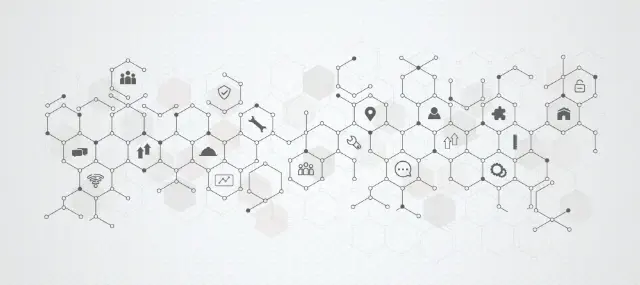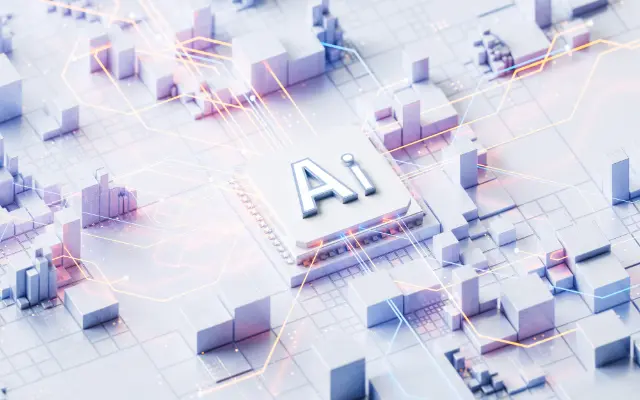Revolutionizing Accessibility Accommodation Management: A Human-Centered Approach
In the vibrant hospitality industry, ensuring accessibility for all guests is not just a legal obligation but a moral imperative. However, managing accessibility accommodations can be a complex and time-consuming task, often involving manual processes and prone to errors. Accessibility Accommodation Management Automation leverages the power of Python, AI, and cloud-based solutions to streamline this process, empowering hospitality businesses to provide a truly inclusive experience for guests with disabilities.
Accessibility Accommodation Management Automation not only enhances efficiency but also ensures accuracy and compliance with accessibility regulations. By automating tasks such as seating arrangements, assistive technology provision, and communication support, hospitality businesses can eliminate the risk of human error and ensure that every guest feels welcome and accommodated.

Python, AI, and Cloud: The Power Trio for Accessibility Accommodation Management Automation
Python is a powerful programming language that is ideally suited for developing both unattended and attended bots for accessibility accommodation management automation.
Unattended bots can be programmed to perform repetitive tasks such as extracting data from forms, updating records, and sending notifications. This can free up human staff to focus on more complex and guest-facing tasks.
Attended bots can be used to assist human staff with tasks such as providing real-time information to guests, answering questions, and resolving issues. Attended bots can be customized to meet the specific needs of each hospitality business, and they can be integrated with a variety of cloud-based platforms and applications.
Cloud platforms offer a number of advantages over traditional RPA/workflow tools orchestrators. Cloud platforms are typically more scalable, reliable, and secure. They also offer a wider range of features and capabilities, including:
- Pre-built connectors: Cloud platforms typically offer a wide range of pre-built connectors that can be used to integrate with a variety of applications and services. This can save a significant amount of time and effort when developing automation solutions.
- Serverless computing: Cloud platforms offer serverless computing services that can be used to run automation tasks without having to manage any infrastructure. This can simplify the development and deployment of automation solutions.
- Machine learning (ML): Cloud platforms offer a variety of ML services that can be used to improve the accuracy and efficiency of automation tasks. For example, ML can be used to identify patterns in data, predict outcomes, and make decisions.
AI can be used to improve the accuracy and handle edge-cases for accessibility accommodation management automation. For example, AI can be used to:
- Identify guests with disabilities: AI can be used to identify guests with disabilities by analyzing data from sources such as reservation systems, loyalty programs, and social media. This information can then be used to provide guests with the appropriate accommodations.
- Recommend accommodations: AI can be used to recommend accommodations for guests with disabilities based on their individual needs. This information can be provided to guests in real-time through a variety of channels, such as mobile apps, websites, and interactive kiosks.
- Resolve issues: AI can be used to resolve issues related to accessibility accommodations. For example, AI can be used to identify and resolve conflicts between guest requests and hotel availability.
Specific AI techniques that can be used for accessibility accommodation management automation include:
- Image recognition: Image recognition can be used to identify objects and scenes in images. This information can be used to determine whether a guest has a disability and what type of accommodations they need.
- Natural language processing (NLP): NLP can be used to understand the intent of guest requests. This information can be used to provide guests with the appropriate accommodations and to resolve issues related to accessibility.
- Generative AI: Generative AI can be used to generate text, images, and other content. This information can be used to create personalized accommodation recommendations for guests with disabilities.

Building the Accessibility Accommodation Management Automation
The accessibility accommodation management automation process can be broken down into the following sub-processes:
- Guest identification: Identifying guests with disabilities who require accommodations.
- Accommodation recommendation: Recommending accommodations based on the guest’s individual needs.
- Accommodation booking: Booking the accommodations and ensuring that they are available for the guest.
- Communication: Communicating with the guest to confirm the accommodations and provide any necessary instructions.
- Follow-up: Following up with the guest to ensure that they are satisfied with the accommodations.
Each of these sub-processes can be automated using Python and cloud-based services. For example, guest identification can be automated using AI-powered image recognition and NLP. Accommodation recommendation can be automated using ML-powered predictive analytics. Accommodation booking can be automated using cloud-based APIs. Communication can be automated using email, SMS, and chatbots. Follow-up can be automated using surveys and feedback forms.
It is important to note that data security and compliance are critical considerations when developing any automation solution. Algorythum takes a data-centric approach to automation, which means that we always put data security and compliance first. We use a variety of security measures to protect customer data, including encryption, access control, and regular security audits.
Compared to no-code RPA/workflow tools, Python offers a number of advantages for building accessibility accommodation management automation solutions. Python is a more powerful and flexible language than most no-code RPA/workflow tools. This allows us to develop more sophisticated and customized solutions that can meet the specific needs of our clients. Additionally, Python is a more open-source language than most no-code RPA/workflow tools. This means that we are not limited to using the features and capabilities that are provided by the vendor. We can also develop our own custom modules and extensions to meet the specific needs of our clients.
Many Business Process Automation (BPA) companies rely on pre-built RPA tools because they are easier to use and require less technical expertise. However, these tools can be limiting and may not be able to meet the specific needs of every client. Algorythum takes a different approach because we believe that every client deserves a customized solution that is tailored to their specific needs. We use Python because it is a powerful and flexible language that allows us to develop sophisticated and customized solutions that meet the specific needs of our clients.

The Future of Accessibility Accommodation Management Automation
The future of accessibility accommodation management automation is bright. As AI and cloud technologies continue to develop, we can expect to see even more sophisticated and innovative solutions that will make it easier for hospitality businesses to provide a truly inclusive experience for guests with disabilities.
Some of the potential possibilities for extending the implementation of accessibility accommodation management automation include:
- Using AI to predict guest needs: AI can be used to predict the needs of guests with disabilities based on their past behavior and preferences. This information can then be used to provide guests with personalized recommendations and accommodations.
- Using blockchain to secure guest data: Blockchain technology can be used to create a secure and tamper-proof record of guest data. This will help to protect guest privacy and ensure that their data is used only for legitimate purposes.
- Using virtual reality (VR) to simulate accommodations: VR can be used to create realistic simulations of hotel rooms and other accommodations. This will allow guests with disabilities to experience the accommodations before they book them, which will help to ensure that they are satisfied with their choice.
We encourage readers to subscribe to our newsletter to get more industry-specific automation content. You can also contact our team to get a free feasibility and cost estimate for your custom accessibility accommodation management automation requirements.
Algorythum is a leading provider of accessibility accommodation management automation solutions. We have a team of experienced engineers who are passionate about helping hospitality businesses to create a more inclusive experience for guests with disabilities. Contact us today to learn more about how we can help you to improve your accessibility accommodation management process.

Algorythum – Your Partner in Automations and Beyond
At Algorythum, we specialize in crafting custom RPA solutions with Python, specifically tailored to your industry. We break free from the limitations of off-the-shelf tools, offering:
- A team of Automation & DevSecOps Experts: Deeply experienced in building scalable and efficient automation solutions for various businesses in all industries.
- Reduced Automation Maintenance Costs: Our code is clear, maintainable, and minimizes future upkeep expenses (up to 90% reduction compared to platforms).
- Future-Proof Solutions: You own the code, ensuring flexibility and adaptability as your processes and regulations evolve.









